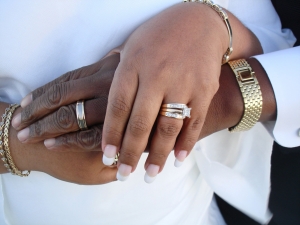It’s easy to take things for granted sometimes. We don’t mean to, but it can naturally happen—it’s the path of least resistance, after all.
But a little bit of appreciation goes a long way between sweethearts.
I just watched this beautiful documentary about Sally and Sam, which left me in tears but also made me very grateful that my husband and I both have our health, and each other.
If you think you could probably do with giving your partner a little extra gratitude, here are three beautiful ways to show your partner you really do appreciate having them around.
1. Thank them
Just because your partner makes dinner every night or mows the lawn every month, doesn’t mean you can’t thank them for it. Even if it has been their job for the last twenty years, even if they got up to the baby during the night just once and you’ve done it a hundred other times, thank them!
Thank them sincerely, and thank them often.
2. Compliment them
Stop for a moment and pay your partner a compliment—let them know you notice them. Perhaps you love that color blue on them, you like their new haircut, you think they give great hugs. Whatever it is, lavish them with a compliment … or three!
3. Do something lovely for them
Take time out of your day to do something just for your partner. It may be as involved as cooking their favorite three-course meal and serving it by candlelight, as cosy as giving them a shoulder rub, or as simple as bringing home a tiny present you know they’ll love.
Do you appreciate your partner as abundantly as you could? What’s your favorite way to show your appreciation?













Recent Comments